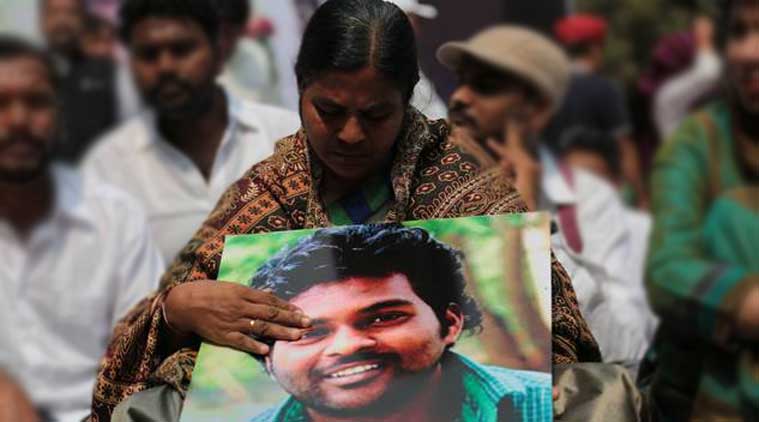
There is no such thing as Islamophobia. There is only anti-Islamism. A Hindu, Christian, or secular liberal does not have a mental illness that makes them afraid of Muslims, they are against Islam as a political ideology and value system. The same is true of homophobia which is really just a cover for anti-homosexualism, which is the political assertion of homosexuals. Simply speaking, they don’t want a person to live like a Muslim or a homosexual and will do anything to extinguish such a life(style).
This is clearly seen if we look at the matter historically. Homosexuals were burnt at the stake during the inquisition and Muslims were hated and fought against during the crusades. Yet, no one said anybody had Islamophobia or homophobia. The reason these neologisms are bandied about with such abandon these days is because of the all pervasiveness of the ideology of mental illness. Mental illnesses and phobias are a recent invention of mankind. And just like the devil and witches explained so many things in the medieval era, so recourse to metaphorical categories like mental illnesses and phobias explains so much in our modern era.
There are two things that are wrong with all this. One, converting the essentially political problems of Muslims and homosexuals into mental health issues. Two, allowing some sort of an authority or norm to define what is mental health and mental illness.
To tackle the second problem first. Who is to say that something is a mental illness? In his essay, The myth of mental illness, Thomas Sasz argues that ‘The concept of illness, whether bodily or mental, implies deviation from some norm. In the case of physical illness, the norm is the structural and functional integrity of the human body. Thus, although the desirability of physical health, as such, is an ethical value, what health is can be stated in anatomical and physiological terms. What is the norm, deviation from which is regarded as mental illness? This question cannot be easily answered. But whatever this norm may be, we can be certain of only one thing: namely, that it must be stated in psychosocial, ethical, and legal concepts.’
Hating Muslims and homosexuals is only a symptom for mental illness if the observer vested with the power of judgment believes that hating Muslims and homosexuals is not normal. Which means that they stop being problems at all if the observer shares the same biases; something which we would agree sounds a little off. Norms are defined ethically and socially. Mental illness thus depends on the current norms of whatever society one is living in. Hating homosexuals was considered normal in medieval Christianity and thus at that time not hating homosexuals would have constituted a mental illness. Who is to say norms can’t turn that way again. In as much as anti-Islamism and anti-homosexualism is a real problem, it is to be solved politically so the solution can be made both fool-proof and knave-proof. In framing them as mental illnesses, neither type of proofing is achieved. We cannot allow these problems to depend on the ‘goodness’ of the observers.
What is called a mental illness is a problem of living, not an actual disease. Bigoted person X has a problem of living with Muslims and homosexuals because he is not used to their value systems or cannot understand their value systems. Maybe their value systems question and dislodge his own and he is not ready to handle the doubt engendered therein. He does not have a mental illness, he just has a problem with thinking through things and he is violent. Violence and idiocy do not constitute mental illness. Certain kinds of violence can be illegal and that’s a problem to be dealt with legally. Certain kinds of idiocy can be considered harmful by the community and then that’s a problem to be dealt with between the community and the individual who has the problem. The point is that no matter what a person thinks or what the norms happen to be, our political system should be such that they cannot cause actual harm.
Now, let’s talk about the short-circuiting of politics done by employing these pseudo-medical terms to problems of living together in secular-democracies. While anti-homosexualism and anti-Islamism as political problems call for education, legislation, sensitization, etc.; framing them in terms of mental illnesses makes them personal problems to be dealt with at the level of the individual. Instead of asking why our community produces such behaviour and what systems we can elaborate to minimize the harm from such behaviour, the question becomes why certain individuals exhibit such behaviour and how such behaviours can be culled. Anyone acquainted with the history of caste in modern India will tell you that the former is much more achievable than the latter.
In India, the problem with the latter attitude can most clearly be discerned in the Gandhi-Ambedkar debates. While Ambedkar wanted a political solution to the problem of untouchability and vehemently argued that no other solution was possible, Gandhi was adamant on making the problem of untouchability a problem that the Touchables had to solve personally in their lives. He framed it in terms of penance that the Touchables have to do for their sins. If alive today, he could as easily have said the Touchables have an untouchable-phobia that they need to go to therapy for. The result would be the same, no need for separate electorates. No one can argue against the fact that making caste a mental illness rather than a political issue is inherently harmful for the victims of caste. Then, why the double standards with Muslims and homosexuals?
If framing anti-Islamism and anti-homosexualism as phobias had merely been a benign wrong, it would be okay to let it pass. But, it is positively hurtful to the two communities (Muslims and homosexuals) when we frame the problems in this way. It is therefore imperative that we recognize that there is no such thing as mental illness and that these problems are thus not mental illnesses but problems of living together that can only be solved politically.
Akshat Jain is a writer currently residing in India. He uses the debate methodology of Syādvāda to piss people off. Like a good Syādvādist, he claims that all his claims fall within the ambit of falsifiability.
SIGN UP FOR COUNTERCURRENTS DAILY NEWS LETTER









































